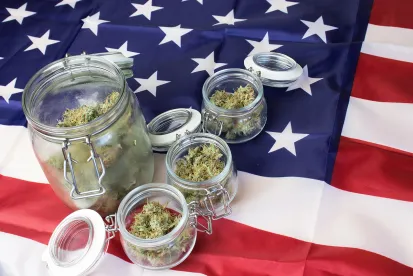Lost in the weeds of recent COVID-19 news is the increasing number of states and localities that have legalized medicinal and recreational use of marijuana. Such legalization brings with it varying degrees of worker protections and employer obligations. Philadelphia, PA and the state of Montana are two of the latest jurisdictions to add their names to the sprouting list of jurisdictions that protect not only medical use, but also recreational use of marijuana. These protections will undoubtedly usher in a new wave of test cases and compliance questions, particularly as many workplaces shift to remote models.
Philadelphia, PA Prohibits Pre-Employment Marijuana Drug Screening
Effective January 1, 2022, the City of Philadelphia now prohibits employers from requiring prospective employees to submit to testing for the presence of marijuana as a condition of employment. Philadelphia joins New York City and Nevada as jurisdictions with similar laws. Like it’s companion jurisdictions, Philadelphia’s ordinance operates as a near blanket ban on marijuana drug tests, but there are carve outs to the rule. These include exceptions for those applying to work as 1) police officers or law enforcement positions; 2) positions requiring a commercial driver’s license; 3) positions requiring the supervision of medical patients, children, disabled or other vulnerable individuals; 4) or any other position in which the employee could “significantly impact the health and safety of other employees or members of the public.” The law also makes an exception for drug testing that is required by federal contracts or collective bargaining agreements.
More details will be available after the Philadelphia Commission on Human Relations issues implementing guidance, which is not yet available.
Montana Joins List of States that Will Protect Lawful Off-Duty Use of Marijuana
Montana HB 701, effective since January 1, 2022, amended the state’s lawful off-duty conduct statute to include marijuana as a lawful product. This means that employers cannot deny job applicants or discriminate against current employees because of their legal use of marijuana during non-working hours. The prohibition includes all manner of employment actions, including hiring decisions, compensation, promotion, and the terms, conditions, and privileges of employment.
Nothing in HB 701, however, prevents a Montana employer from taking adverse action against an employee if that employee is intoxicated at work. The law only protects lawful “off-duty” conduct.
Approximately twenty-nine states have similar statutes that protect employees’ participation in “lawful activities,” but Montana is among a small list that specifically labels marijuana as a protected lawful activity. For states that do not specify marijuana as a lawful activity, it is less clear if the general statute would protect a marijuana user, even if recreational marijuana was legalized. Colorado, for example, has a lawful activity statute but the Colorado Supreme Court held that the statute does not protect recreational marijuana users because, although legal at the state level, recreational marijuana use is still illegal under federal law.
Anti-Discrimination Statutes
Although Montana is one of the first states to specifically include marijuana as part of its “lawful activity” statute, other states have provided the same or similar protection to recreational marijuana users through passage of anti-discrimination laws. These include New York, Connecticut, and New Jersey. And approximately seventeen states protect medical marijuana users from varying degrees of discrimination in the workplace. These include Maine, Vermont, New Hampshire, Massachusetts, Rhode Island, Pennsylvania, Maryland, Virginia, West Virginia, Delaware, Illinois, Minnesota, South Dakota, Oklahoma, Arkansas, New Mexico, and Arizona.
Remote Workplace Concerns
Nearly all statutes that provide protections for medical or recreational use of marijuana draw a line between on-duty impairment and off-duty use. While the former is prohibited, the latter is not. For hourly employees that work on employer facilities, the distinction is easy to follow. But for exempt employees or remote workers, the line between on duty and off duty work is not as easily tracked.
The New York Department of Labor specifically remarks in its guidance that although an employee’s private residence is not a “worksite,” an employer may take action if the employee is exhibiting “articulable symptoms of impairment during work hours and may institute a general policy prohibiting use during working hours.” Accordingly, employers should make their written policies clear that prohibitions on use are not dependent upon employee location, but rather whether the employee is engaged in work.
Given the wide range of state and local rules on cannabis use, it is important employers stay abreast of developments in these laws.





 />i
/>i
